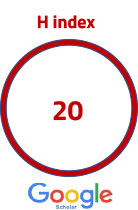| Acceptance rate | 46% |
|---|---|
| Time to first decision | 6 months* |
| Time to decision with review | 50 days* |
*Approximate number of days
**The days mentioned above are averages and do not indicate exact durations. The process may vary for each article.
ACTA Pharmaceutica Sciencia
2011 , Vol 53 , Num 3
MATRIX DOSAGE FORM OF DILTIAZEM HYDROCHLORIDE: DEVELOPMENT, CHARACTERIZATION AND IN VITRO EVALUATION
Smt. R. B. Patel Mahila Pharmacy College, Atkot, Gujarat, India
Viewed :
16909
-
Downloaded :
5922
Matrix tablets of Diltiazem hydrochloride were developed by wet granulation method. Hydroxypropyl methylcellulose; HPMC K4M, HPMC K15M, HPMC K100M were used to prepare the matrix tablets. Na-carboxymethyl cellulose (NaCMC) and ethylcellulose were added to alter the drug release profile or the dimensional stability of the formulation. Formulations were evaluated for preformulation parameters, in vitro drug release profile and release kinetics. The formulations were found to have good preformulation characteristics. The release mechanism of Diltiazem hydrochloride from matrix tablets indicated anomalous (non-Fickian) transport mechanism. FTIR spectroscopy indicated the absence of any significant chemical interaction within dug and excipients. DSC studies revealed the presence of other excipients did not affect the drug nature and was well maintained in the selected formulation.
Keywords :
MATRIX TABLET, FOURIER TRANSFORM INFRARED, DIFFERENTIAL SCANNING CALORIMETRY, NON-FICKIAN, DILTIAZEM HYDROCHLORIDE





